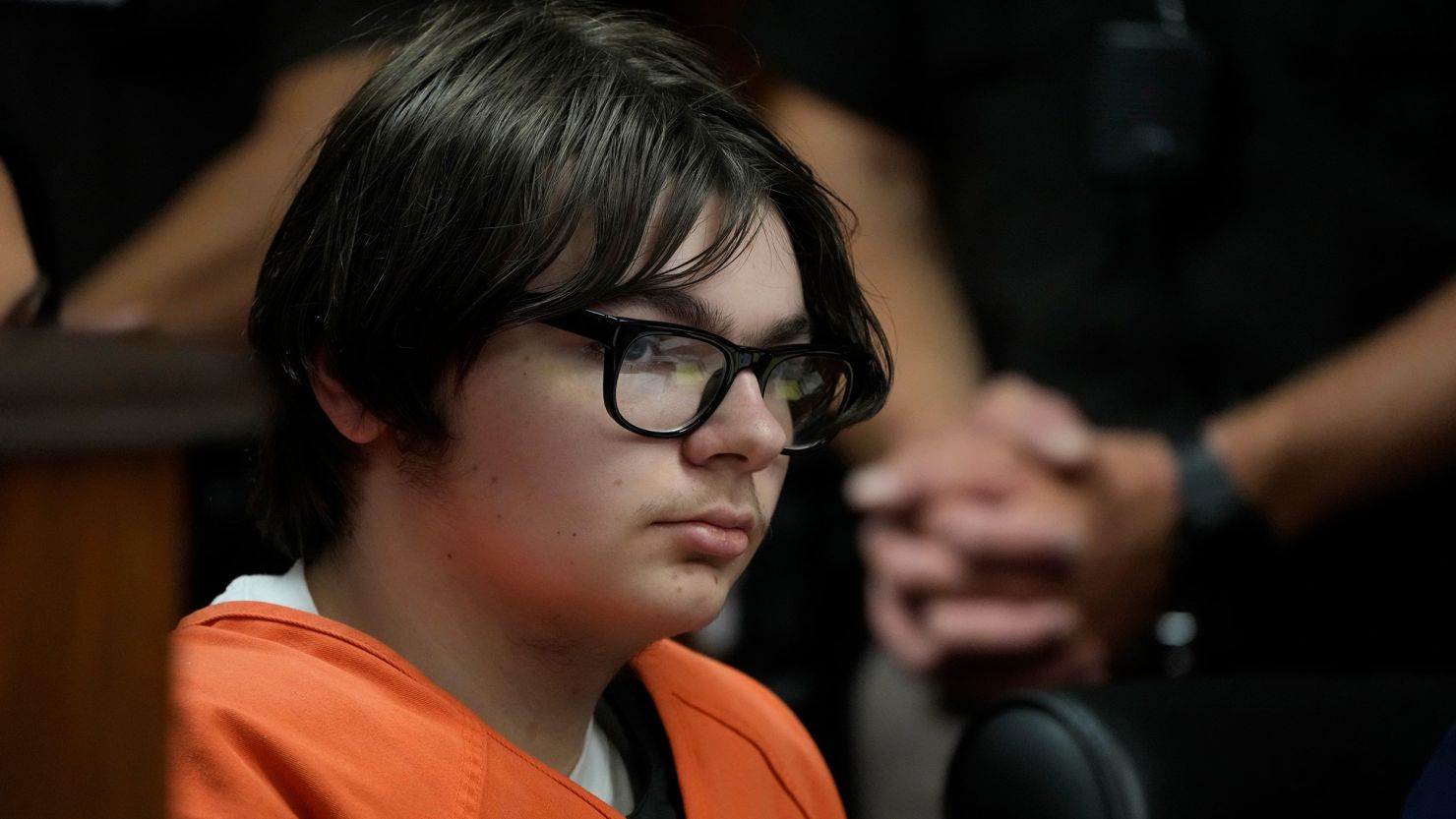It’s the harshest penalty available in Michigan, a life sentence without the possibility of parole. But that isn’t enough for the parents of one student killed by a school shooter.
Ethan Crumbley killed four of his classmates and wounded seven other people at an Oxford, Michigan, high school in 2021, among them 17-year-old Justin Shilling. Friday, Shilling’s parents will join the hundreds of American families who have had to meld grief with legal procedure.
“I personally feel that when you do something like that, that you should meet the same fate. You can’t just pull the trigger on somebody and then walk away like nothing happened,” Craig Shilling, Justin’s father, told CNN ahead of Crumbley’s scheduled sentencing.
“I actually, I don’t think he’s going to get what he deserves to get, but I feel like he’s going to be punished for the full extent that they can be, but then in my mind that is not enough,” Shilling added.
In October 2022, the gunman pleaded guilty to one count of terrorism causing death, four counts of first-degree murder and 19 other charges. Prosecutors said at the time they believe this was the first time a mass shooter had ever been convicted of terrorism on state charges for “an act of targeted violence like this.”
The state of Michigan doesn’t have the death penalty, but in September 2023 a judge ruled the shooter is eligible for life without parole, despite him being 15 at the time of the shooting. A lesser sentence of life with the potential for parole could also be handed down.
“I’m praying for life without parole,” Justin Shilling’s mother, Jill Soave, told CNN. “That would be the least amount of justice, you know, that I would consider for his actions.”
“Nothing is enough. You know, he gets to live, and my son doesn’t. So I’m never going to feel satisfied as a parent, but that is the maximum punishment allowed by the law. So I am praying that the judge will make that decision,” Soave added.
Staring down a killer
Justin’s parents are among those planning to provide a victim impact statement to the court at the sentencing hearing Friday to talk about how their lives have changed since the shooting.
“I’m very grateful that Friday we do have the final sentencing for the shooter. That part, to be over, is going to be huge for me,” Soave said. “Being in the courtroom with a person that murdered my son, I don’t want to do that. It’s hard, but I’m going to speak for myself and for Justin,” she said as she fought back tears.
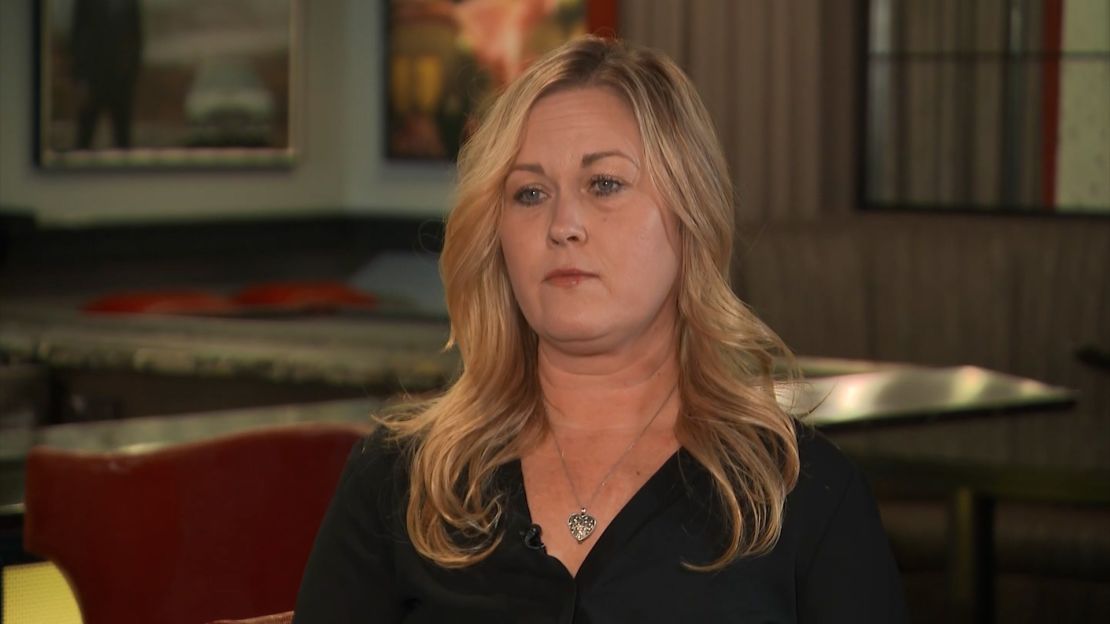
Both parents describe “primal” feelings of rage against the shooter, and they want their voices to be heard.
Soave said she can feel Justin’s presence still, that it helps her feel a sense of calm. Shilling hopes to keep a similar level of composure.
“That’s all that I can do, try and keep myself composed enough to get through my speech,” he said. “And make sure that I do the best for my son.”
In some of Justin Shilling’s final moments, he was hiding in a bathroom with another student, Keegan Gregory, who was texting his family groupchat in real time as everything played out.
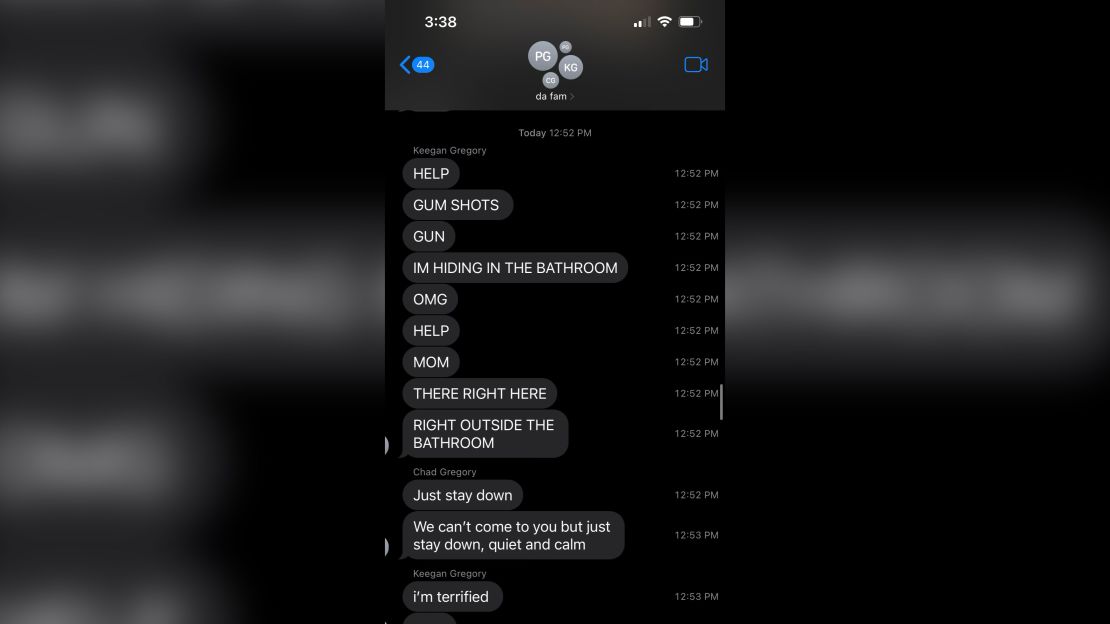
“IM [sic] HIDING IN THE BATHROOM, OMG, HELP, MOM,” read a series of messages. “He killed him, OMFG” read the next two.
Then for four excruciating minutes, nothing.
“He wasn’t responding, and I started screaming hysterically,” Meghan Gregory, Keegan’s mother, told CNN.
Finally, a text came through, “I JUST WATCHED HIM KILL SOMEONE,” AND “HE PUT ME UP AGAINST THE WALL” before he texted that he ran and, likely as a result, survived.
“The day he came home, he sat with us and he said, ‘I shouldn’t have left him,’” Gregory said, recalling what her son told her about Justin Shilling, who was killed in the same bathroom where Keegan was hiding. “There’s nothing he could’ve done for Justin, but he feels this guilt because they were in it together.”
Keegan was 15 at the time of the shooting and for years has gone to therapy to try and process what happened. He’s now moved away from the area to a different school. “He couldn’t go back into Oxford. He tried. But it was too much for him,” Meghan Gregory said.
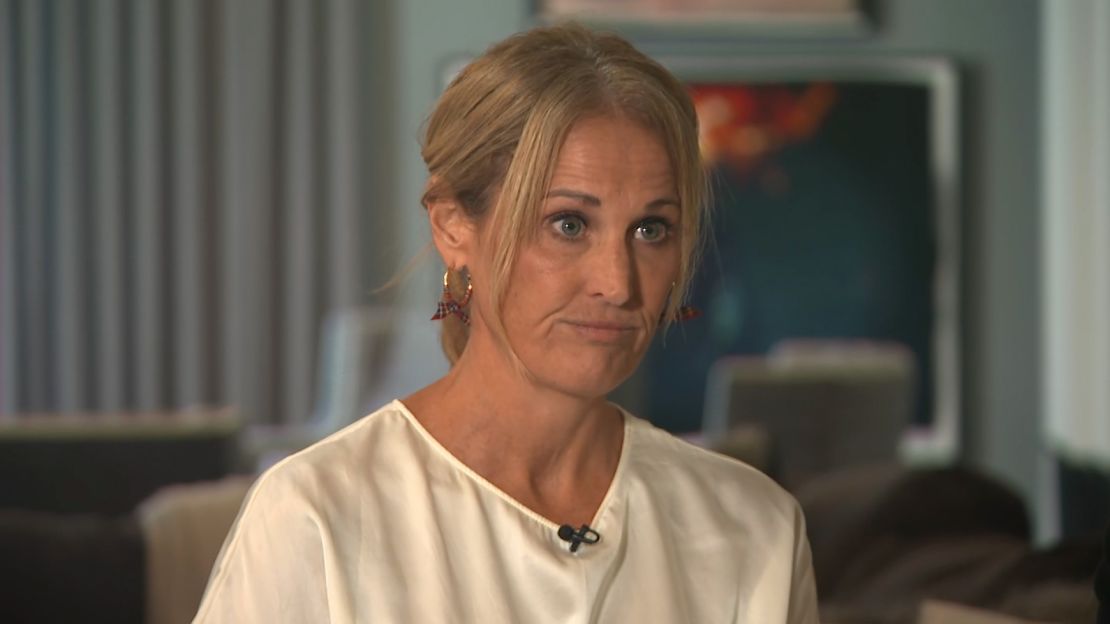
While CNN sat with his mother, Keegan was working on his victim impact statement, something he initially wanted nothing to do with, his mother said. Now, “he feels it’s important that he gets up there.”
“He’s a completely different person” than he used to be, his mother told CNN. “Having that innocence ripped from him changed him. He doesn’t get the childhood that most kids get.”
The school district and governmental immunity
While the sentencing in the criminal case is one major thing these families are dealing with, they’ve also filed civil lawsuits alleging the school and some of its employees should have done more to stop the shooting from happening in the first place.
“I’m not really one of those guys that’s just gonna go out and sue, sue, sue,” said Craig Shilling. That said, “You have to have accountability. You have to know that everything, every rock was overturned, you looked everywhere, that all the questions got asked and answered,” he added.
An independent report commissioned by the Oxford Board of Education, and released in October, found in part, “that had proper threat assessment guidelines been in place and District threat assessment policy followed, this tragedy was avoidable.”
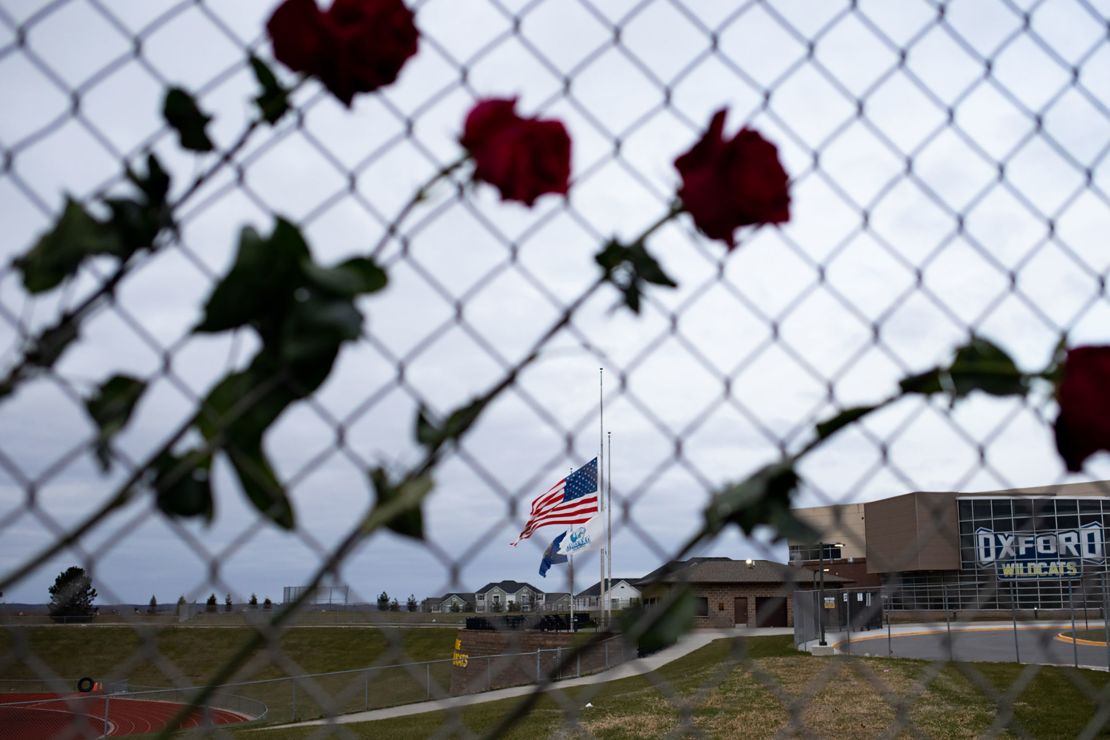
Ven Johnson, President of Ven Johnson Law in Detroit and Flint, Michigan, is representing a number of the Oxford shooting victims and families, including the Shillings and Gregorys, who have filed state and federal lawsuits.
“What we do in civil law is we go after everybody who’s culpable,” Johnson told CNN. “Their own paid-for report says they screwed up and could have prevented the shooting. And they didn’t. And yet, they’re still here in court, trying to get out of being held responsible.”
A portion of their civil claims center on the morning of the November 2021 shooting. Ethan Crumbley’s teacher found a note on his desk. It had a drawing of a handgun pointed at the words, “The thoughts won’t stop. Help me,” as another section showed someone who appeared to have been shot twice and the words “blood everywhere,” according to the lawsuit.
That was among the warnings that prompted a meeting with school officials and his parents. His parents resisted the idea of taking him out of school, so he returned to class, according to the civil lawsuit. No one ever checked his backpack.
Hours later, he went into a bathroom with that backpack and came out with a gun, according to criminal prosecutors.
However, in state civil court, a judge sided with the school district, ruling the district was protected by governmental immunity and that the employees were not the “direct cause of the injury or damage.”
“That’s all B.S., if you ask me. I mean, you have to, you have to own up to your mistakes, no matter what they are,” Shilling said.
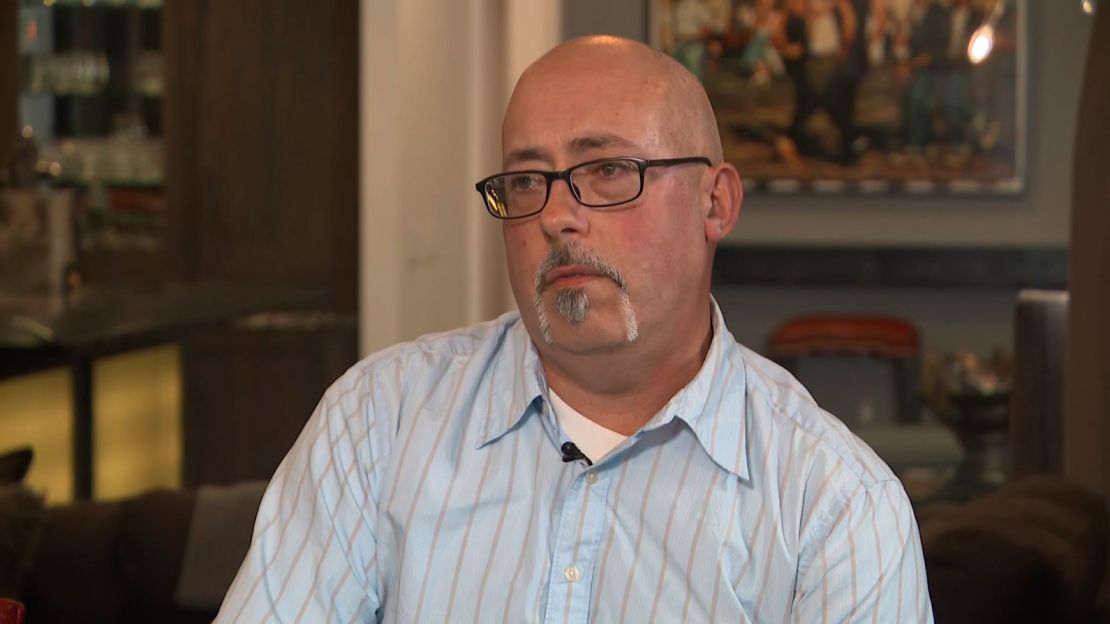
Meghan Gregory told CNN she won’t be able to rest until anyone who may be found culpable in the school district is held accountable.
“I cannot let it go,” she said.
CNN has reached out to attorneys for the school district about the appeals process and for comment about governmental immunity wins they have had in state circuit court, but has not received a response.
The families are in an appeals process for their cases filed at the state and federal levels, and if successful, the state case, for example, could be “absolutely a potential landmark decision under Michigan law” in terms of governmental immunity, Johnson said.
Michigan is one of many states that extends some protections from civil lawsuits to government agencies and workers while engaged in the exercise or discharge of a governmental function.
“It’s absolutely, absolutely, in my opinion, it is denial of equal protection, it’s unconstitutional, and it should be thrown out. And that’s one of many arguments we’re making on appeal,” Johnson said.
‘The grieving doesn’t end’
Regardless of all the court efforts, none of them will bring back the four people who were killed in this shooting, 16-year-old Tate Myre, 17-year-old Madisyn Baldwin, 14-year-old Hana St. Juliana, and Justin Shilling.
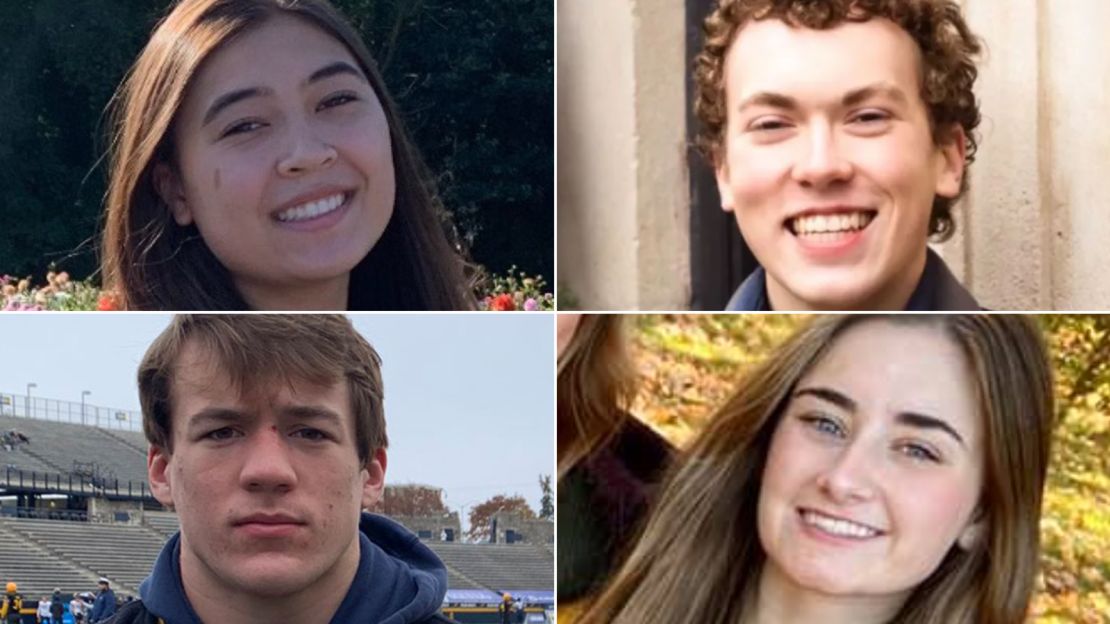
“He was the only Justin Shilling there ever will be,” Craig Shilling told CNN. It’s part of why he said they started the CHOOCH Foundation, which stands for Caring and Helping Others Often Creates Hope, in honor of Justin, because “that’s the kind of person he was,” said Shilling.
Jill Soave also created the “Forever Justin Shilling Foundation” to honor his love for nature. She told CNN Shilling was an organ donor and helped save the lives of six others through donations of his organs and tissue.
It’s a reality that’s helped Soave cope, she says, even as she prepares to stare down his killer.
“I wouldn’t say that I will ever forgive him. And I don’t think I’m required to. But I have to accept that this has happened,” Soave said. “The grieving doesn’t end. It’s an ongoing process of trying to learn how to live how to get through every day.”
“I have not held [onto] anything and when I need to fall onto my knees and pray and cry and scream, I’ve allowed myself to do that,” she said.

